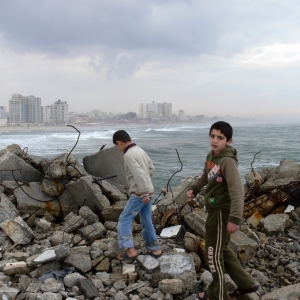The Stream, May 21, 2021: Small Water Systems Are Losing Revenue Amid Pandemic
YOUR GLOBAL RUNDOWN
- Up to half of all small community water systems in the United States lost revenue because of the coronavirus pandemic, a new report finds.
- A new report identifies widespread groundwater contamination from coal ash holding ponds throughout Michigan.
- Germany launches a $1 billion fund to conserve land and water globally.
- The Canadian city of Regina says it will need millions of dollars and a decade and a half to replace all of its lead service lines.
The United States Senate proposed a program that could relieve millions of households from utility debt.
“The goal is to enable utilities to do the right thing but not suffer catastrophic economic consequences as a result.” – Jeff Merkley, a Democratic senator from Oregon. Proposed legislation would create a $30 billion low-interest loan program for electric, water, and sewage and broadband providers so they could cancel debt for millions of low-income American households, the Guardian reports. The legislation was introduced in the Senate on Thursday as part of the Maintaining Access to Essential Services During the Covid Emergency Act of 2021.
- Why it matters: Between December and February, Congress allocated more than $1.1 billion to relieve households of water debts accumulated during the pandemic. Yet, as of April, none of those funds had been allocated to states, let alone distributed to families in need.
IN RECENT WATER NEWS
In Alaska, Climate Research Struggles to Incorporate Indigenous Knowledge
With the upheaval in Arctic and sub-Arctic ecosystems, it is no wonder that climate scientists are flocking to the far north, collecting data and studying land transformations that have the potential to affect the world over. But in the communities in which they arrive, permafrost thaw and climate change are hardly new buzz. The locals, often from remote and indigenous communities, have long been living with the effects of an altered landscape, necessarily becoming relevant experts on the ramifications of climate change in their home lands. But despite this expertise, they say, their knowledge and perspectives are rarely called upon.
The exclusion of indigenous voices pervades many steps of the scientific method. Very few researchers have visited Indigenous Alaskan communities like Beaver and the Yukon Delta before, which means they lack baseline data or historical context by which to ground their study. The local experience–that of empty freezers during trapping or fishing seasons, the catch made scarce by heavy heat; the changing river patterns locals once knew like the back of her hand; the spiritual and emotional symbiosis between the tribes and wildlife–is not easily transferable to the infrastructure of an academic paper. Indigenous truth and fact might not hold up in a peer-review; transcribing the oral stories that have defined a people for centuries might be considered unsubstantiated data collection.
In Case You Missed It:
Green Infrastructure: Cities Around the Great Lakes Plan for a Changing Future – Cities around the Great Lakes basin are increasingly turning to green stormwater infrastructure to ease the burden on their wastewater infrastructure and improve water quality. This story was originally published by Great Lakes Now as part of the Great Lakes News Collaborative.
HotSpots H2O: Amid American West Megadrought, Montana’s Reservoirs Are Running Dry – The pain of extreme megadrought in the American West is being felt in Montana, where officials worry that a historically dry spring will shrink the state’s agricultural yield and increase the risk of summer wildfires
Report Finds Widespread Groundwater Contamination From Coal Ash in Michigan
A report from the Michigan Environmental Council found widespread groundwater contamination under the majority of Michigan’s ash ponds between 2017 and 2019. Groundwater monitoring data from 2018 and 2019 showed that 80 percent of the 15 coal ash disposal sites with publicly available data had levels of toxic chemicals in groundwater above state or federal standards. The report recommends requiring utilities to report groundwater monitoring data for toxic heavy metals and develop plans to clean up the contamination and prevent it from recurring.
TODAY’S TOP WATER STORIES, TOLD IN NUMBERS
$1 BILLION
After countries missed key land and marine conservation targets, Germany launched a $1 billion fund to boost biodiversity worldwide, Reuters reports. The move comes as the United Nations prepares to launch the “30 by 30” campaign to conserve 30 percent of the world’s land and water by 2030.
53 MILLION PEOPLE
A report from the Pacific Institute found that between one quarter and one half of small community water systems throughout the United States have lost revenue during the pandemic. Small water systems, which are classified as those serving fewer than 10,000 people, serve 53 million people across the country. The report found most revenue losses can be blamed on unpaid water bills and declines in water usage. Many of the challenges faced by small water systems, the report said, date back long before the pandemic.
- Why it matters: A 2020 investigation by Circle of Blue, which is referenced in the Pacific Institute’s report, found that more than 1.5 million residents owed more than 1 billion to their water departments. For rural water systems, staying financially viable is often a “monstrous elephant in the room.” Building, maintaining, and operating a water and sewer system is generally the most expensive item on a small town’s budget.
ON THE RADAR
A report from the city of Regina in Canada’s Saskatchewan province said it will need 15 years and $36 million to replace all of its lead service lines, CBC News reports. City Councillor Andrew Stevens said the proposed timeline balances infrastructure requirements, construction plans and affordability. The report also recommends forcing homeowners to replace private water connection pipes, which could cost between $50 million and $70 million.
Jane is a Communications Associate for Circle of Blue. She writes The Stream and has covered domestic and international water issues for Circle of Blue. She is a recent graduate of Grand Valley State University, where she studied Multimedia Journalism and Women, Gender and Sexuality Studies. During her time at Grand Valley, she was the host of the Community Service Learning Center podcast Be the Change. Currently based in Grand Rapids, Michigan, Jane enjoys listening to music, reading and spending time outdoors.







Leave a Reply
Want to join the discussion?Feel free to contribute!